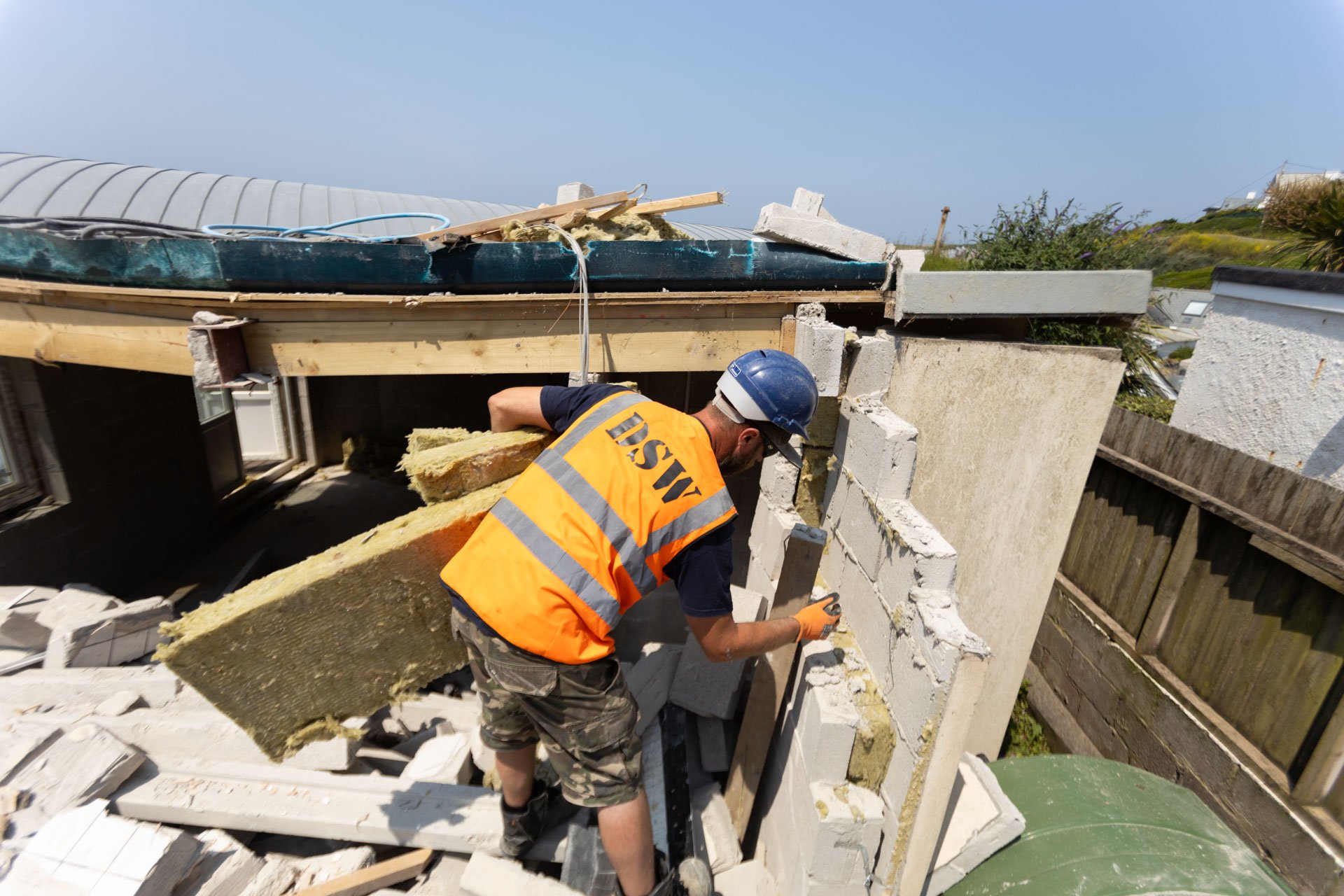In Cornwall, as in many other local authorities in the UK, you are generally required to notify the council about a demolition project well in advance. The specific notification requirements and procedures may vary slightly depending on the local regulations and the size and scope of the demolition project. However, the following are general guidelines for when you should notify Cornwall Council about a demolition project:
- Pre-Construction Information: Provide preliminary information to Cornwall Council before starting any demolition work. This information should include details about the project, such as the location, scope, proposed start date, and the name of the person or company responsible for the demolition. At the same time, you are responsible for contacting your electricity & gas suppliers, British Telecom (Openreach), The National Grid and South West Water.
- Application for Demolition: Submit a formal application for demolition to Cornwall Council. The application typically includes detailed plans and information about the project, such as the method of demolition, health and safety measures, and environmental considerations.
- Notification Period: Notify Cornwall Council well in advance of the planned demolition. The notification period can vary but is typically at least six weeks before the intended start date. This allows the council to assess the application and ensure that all necessary permits and safety measures are in place.
- Health and Safety: Ensure that the demolition project complies with health and safety regulations, including the Construction (Design and Management) Regulations 2015. This includes appointing a principal designer and principal contractor, preparing a health and safety plan, and providing information to the Health and Safety Executive (HSE).
- Asbestos Survey: Conduct an asbestos survey of the building to identify and manage any asbestos-containing materials (ACMs) that may be present. You must also notify the HSE of any asbestos removal work.
- Environmental Considerations: Consider the environmental impact of the demolition and comply with any relevant environmental regulations. This may include managing waste materials and protecting nearby water sources, as well as nesting birds and bats.
- Heritage and Conservation Areas: If the building is in a heritage or conservation area, you may need to obtain additional permissions and follow specific guidelines for preserving historical features.
- Public Safety: Ensure public safety during the demolition process by implementing safety measures, such as fencing off the demolition area and posting appropriate notices.
It’s important to note that these guidelines are general in nature, and specific requirements may vary depending on the nature of the project and local regulations. Therefore, it’s essential to contact Cornwall Council or consult their website to obtain the most up-to-date and precise information on the notification process and requirements for your specific demolition project. Failing to notify the council and comply with regulations can result in legal and safety issues.
What can Demolition South West do to help you in the process of the points above?
DSW can handle the majority of the points above for you as part of our demolition contractor services in Cornwall. However, we don’t often get involved in dealing with your utility companies, as that is much quicker and easier for you to deal with directly. However, in the first instance, get in touch with our team and we will be happy to discuss your residential demolition project.


